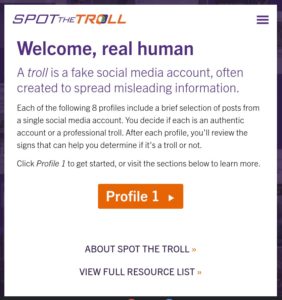
By Lindsay Street, Statehouse correspondent | The S.C. Senate voted 43-0 Wednesday with unanimous consent for final reading Thursday to create a study committee tasked with exploring how utilities in the state buy and sell energy to meet customer demand.
- Previous coverage: Legislature poised to study how utilities meet energy needs
The Senate gave final reading Thursday on House Bill 4940, which seeks to create an energy market reform study committee. The House passed the bill 81-31 in February. Now, it will be up to the House to concur after the Senate “added some clarifying language,” according to bill advocate Eddy Moore, energy and climate program director at Coastal Conservation League. The House will have an opportunity to concur next week, but without that concurrence the bill will be dead until the 2021 session.
“All we need is House compliance,” Moore said. “There should be no substantive dispute and no known opposition that I am aware of. We just don’t want it to slip through the cracks after coming this far.”
The committee will explore how to create a regional transmission organization (RTO) in the state. According to other studies of the southeast, a multi-state RTO would require existing utilities to buy energy from the cheapest energy provider at the time they need it. The reports have said such a model would decrease energy expenses for customers and utilities, and lessen carbon emissions since it would likely favor cheaper renewable energy.
The eight-member committee — four from the House and four from the Senate — will have a 20-member advisory board that includes seats for major utilities and stakeholders.
Here’s a summary of other legislative ongoings this week:
- CARES Act appropriations pass House, Senate. An additional $668 million in CARES Act money — the federal aid sent to help states grapple with pandemic expenses — has been allocated by the S.C. House this week days after the Senate passed its own version. Of the money left, the House seeks to put $93 million toward testing and provide grants of up to $25,000 for small businesses and nonprofits. The House also allocated $450 million toward replenishing the state unemployment fund. Read more.
- Absentee voting expanded for November. On Wednesday, top Columbia leaders gathered for a ceremonial signing of a law expanding absentee voting to all registered voters in the state. Read more. Advocates say, however, the measure does not go far enough toward eliminating barriers of voting caused by the pandemic. Republicans kept the requirement for a witness signature and declined to increase the number of ballot-drop boxes around the state.
- State budget passes the Senate, stalls in the House. House Ways and Means Chair Murrell Smith, R-Sumter, said he wants to wait until January to pass a state spending plan two days after the Senate passed 40-3 a $9 billion budget that included $70 million in teacher raises and state employee bonuses. Smith said waiting until January will ensure that lawmakers aren’t spending money that the coronavirus pandemic has stripped from the coffers, and pledged to pass a budget similar to the Senate. Like Gov. Henry McMaster, he is advocating for a continuing resolution, something lawmakers passed before the fiscal year began July 1. Read more.
- See the Senate schedule here.
- See the House schedule here.
Can you spot the troll? Here’s how to beat Clemson’s quiz
Two Clemson University professors want to fight online misinformation by giving everyone a pop quiz. But don’t worry, it’s only eight questions.
 Darren Linvill and Patrick Warren have debuted this week “Spot the Troll,” an educational tool to guide users toward being better informed on social media while asking participants to divine the legitimate profiles from those linked to foreign governments.
Darren Linvill and Patrick Warren have debuted this week “Spot the Troll,” an educational tool to guide users toward being better informed on social media while asking participants to divine the legitimate profiles from those linked to foreign governments.
Spreading wrong or deliberately false information online often starts with fake accounts. A post is then shared by real people who feel the posts speak to their personal or political beliefs. Linvill and Warren have identified millions of such posts since the 2016 election where U.S. officials uncovered efforts by Russians to sow disinformation on social media.
Social media’s proliferation of disinformation has been listed as a top security concern for the 2020 election. This week, intelligence officials warned that Russian meddling has intensified.
If the thought of a pop quiz is giving you anxiety (hello, recurrent nightmare in the meritocracy), you’re not alone. Linvill told the Charleston City Paper he is hearing from participants who are “overthinking” or not going with their gut (although, he warned, sometimes your gut isn’t always right). And for those who just want to get it right? Relax — no GPAs to worry about.
“This quiz is about the journey, not the destination. I don’t care what your score is. I care that you went through it and thought about it,” Linvill said. “Our goal is to get people to consider who they’re engaging with, who they are retweeting and not do it lightly because their accounts are the tools of disinformation. Disinformation doesn’t spread without people spreading it.”
The quiz is part of Clemson’s new Media Forensics Hub, which seeks to engage and educate the public at large, to make it easier to spot disinformation.
So, how can you get a perfect score on the quiz?
“The main thing is to be wary. When something looks too good to be true, it probably is. And at the end of the day, strangers don’t always have your best interests at heart. There are signs one can look for that someone is a real human being,” Linvill said. “Trolls don’t have depth.”
In other words: Legitimate profiles tend to have personal posts and information scattered amid the political beliefs and post-sharing.
- Take the quiz at: spotthetroll.org.
- Have a comment? Send to: feedback@statehousereport.com


